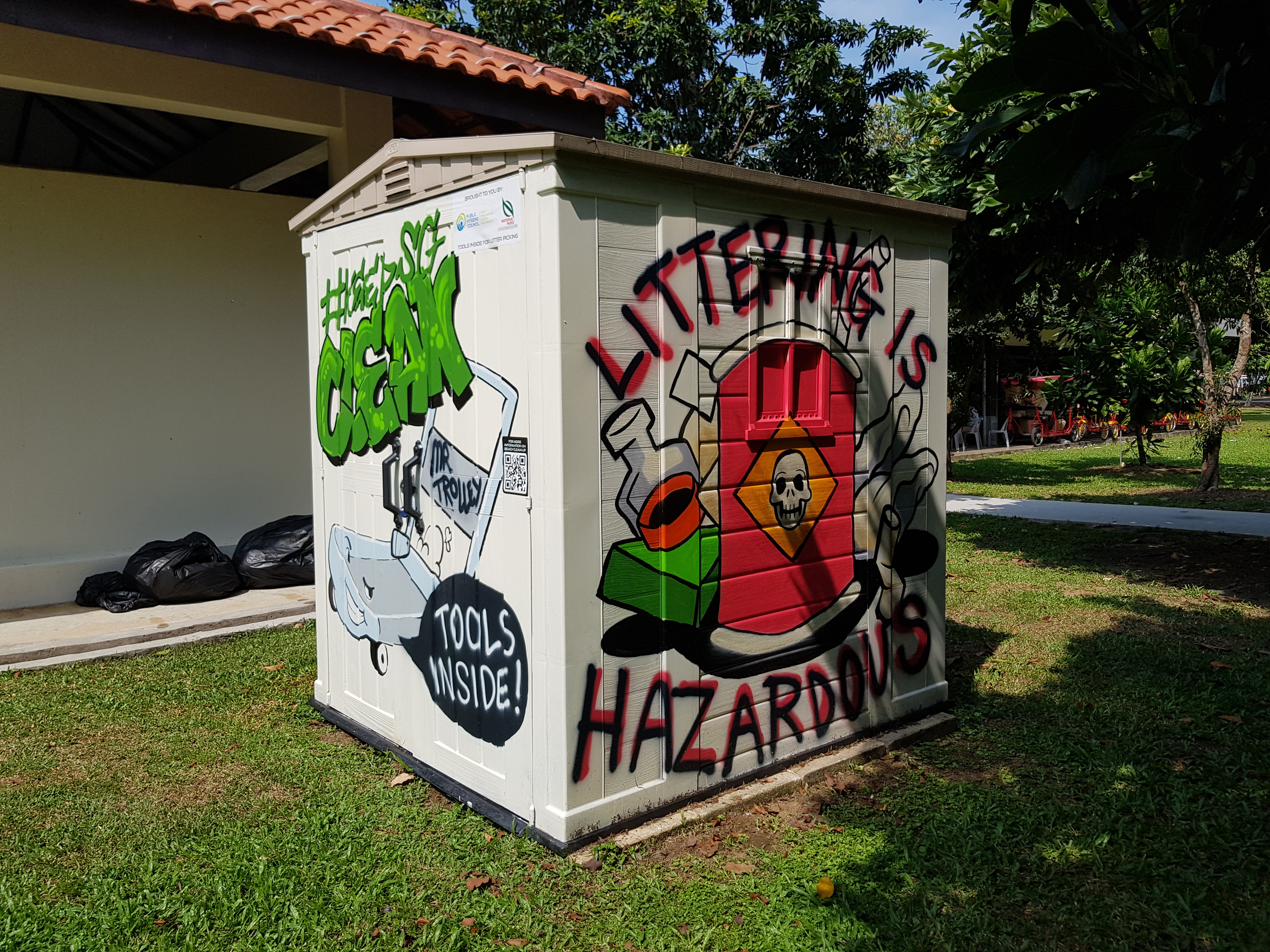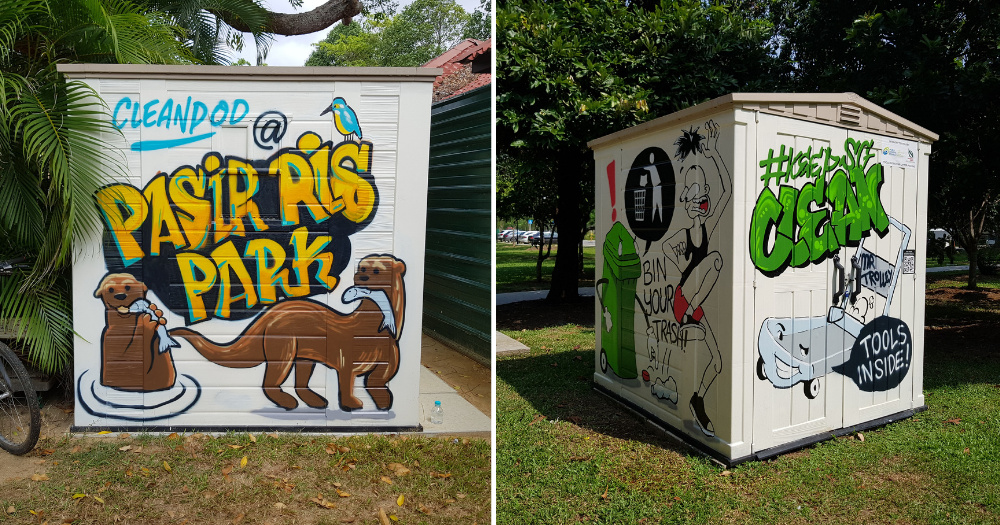Four storage rooms equipped with litter-picking tools have been set up at several parks around Singapore to make it more convenient for Singaporeans to help keep the environment clean.
Called CleanPods, these rooms were set up as part of a joint collaboration between the Public Hygiene Council (PHC) and the National Parks Board (NParks) to encourage people to "conduct cleanups in a more convenient, sustainable and efficient manner".
Storing reusable tools to reduce waste
The CleanPods look somewhat like storage sheds and are decorated in graffiti and slogans:
 Photo courtesy of PHC and NParks
Photo courtesy of PHC and NParks
Not a product of Apple.
You can find reusable buckets instead of single-use trash bags to contain the litter picked up, as well as tongs, weighing scales and garden carts.
Schools, private and non-governmental organisations who plan beach cleanups can share and use these tools as and when they wish, as long as they're available for use.
This hopefully discourages people from buying new items for organised cleanups that they might discard afterward.
The CleanPods are also conveniently located near washing points, toilets and trash collection points.
There are also plans to include gardening tools inside the pods in the future.
The pods are thus a timely initiative which encourage Singaporeans to pick up their tools and take ownership of their environment.
More trash but more cleanups too
Currently, two CleanPods have been placed at East Coast Park, while one has been placed at Bishan-Ang Mo Kio Park and Pasir Ris Park respectively.
The parks were specifically chosen based on the demand for existing litter cleanups, and the demand for tools and materials to support such activities.
Three more will be set up by the end of the year at Changi Beach Park and East Coast Park, with more to come by next year.
As Singapore's waste problem swells, more volunteer groups have thankfully been coming forward to organise their own beach cleanups.
According to the National Environment Agency, an average of over 700 beach cleanups were conducted annually between 2016 and 2018.
Top photo courtesy of PHC and NParks
If you like what you read, follow us on Facebook, Instagram, Twitter and Telegram to get the latest updates.
